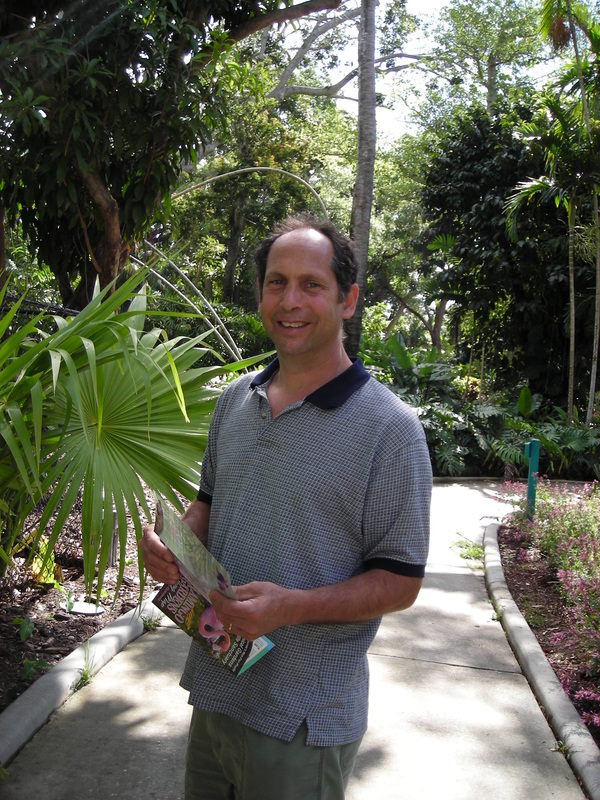but the foolish man fetters himself.
There is one Dharma, not many.
Distinctions arise
from the clinging needs of the ignorant.
To seek Mind with the (discriminating) mind
is the greatest of all mistakes.
Rest and unrest derive from illusion;
with enlightenment
there is no liking and disliking.
All dualities come from ignorant inference.
They are like dreams or flowers in air -
foolish to try to grasp them.
Gain and loss, right and wrong,
such thoughts must
finally be abolished at once.
"There is one Dharma not many." Seng Tsan makes this statement but the third bodhisattva vow says "The Dharmas are un countable, I vow to master them." What are we to think? Which is correct? Throughout this whole poem Seng Tsan does not waver from his deep insight into the non-dual the One. Yes we see the world broken up into the many but the deeper truth is the One. This deeper truth is the heart of Zen. Everything else in Zen and Buddhism are just devices for the awakening to this greater truth.
There is an intuitive truth to this idea of Oneness that I think most people recognize. Many people even thirst for an experience of loosing themselves in the One. But ultimately for we humans it is incredibly difficult and rare to have a true awakening to the One because it means we must drop everything we think is important and everything we fear. This takes bravery and it also takes faith.
The other day I gave a talk about faith in the Zen context. I am not sure it went over very well because this word "faith" has such strong connotations from it's use in Christianity and other religions that it may have been difficult for some to understand faith the way I was presenting it. In Christianity and most other religions there is a faith in some idea of God. But also in these religions there is a faith in a large structure of ethical values and behavioral rules and other ideas that were supposedly passed down to us humans by God not to be questioned. This is not the faith that we Zen practitioners need. Our faith is much simpler. It is the faith that whatever happens it will be OK. This is not at all an easy faith because we are filled with desires, some selfish and some not selfish, and we want things to be a certain way. Yet we know that things may or may not turn out the way we want. To say that that is OK that is our faith. I am not even saying that we should even have a faith that in the long long run things will be better in any way that we humans will recognize as better. But even that is OK.
The faith I am talking about is a faith in the non-dual, it is a faith in the One. It is also a faith in the implications of non-duality, like emptiness, deep interdependence, no-self. and a fundamental ignorance. And even though as a practitioner we may or may not have had an experience of the One we still need this faith because it is only through this faith that we can let go all our dualistic judgments and have an experience of the One.
If we don't have this faith or a similar religious faith then we can only have a faith in our small selves, our emotions and our intelligence, and we will be caught in a cycle of dualistic thought. I have a little scenario in my head that I am trying to explain this to a person with a God oriented faith. I say, "Do you think God will reveal himself to someone who criticizes his creation?"
Don't confuse this faith in the One with a faith in an anthropomorphic idea of God. Some may think that without a faith in God there is just nihilism. But then the faith that I am talking about, the faith in the Non-Dual works in a reverse fashion from theistic religion. Instead of creating a humanized view of the world through a humanized God, in Zen we learn to identify ourselves with the One which transcends being human. Through identification with the One we also identify with the other, humans, animals, plants, mountains, stars, this whole unbounded Universe and everything contained there in, and the processes which create everything there in. This is our true unbounded Self. The One is the many and the many is the One.
Several years ago I had a discussion with a devout Christian on the Theory of Evolution. He explained that he didn't believe in Evolution because he felt it was insulting. He preferred to believe he was a special creation of God. I think that most humans thinking of themselves as only individuals want to believe in their specialness but through identification with the One we can drop all need for specialness and then not only can we believe in Evolution but we become Evolution. People don't want to die, consequently we have all sorts of beliefs in an afterlife or reincarnation yet if we come to identify with the One we don't see ourselves as really dying. The true Self, the One, does not die. In the Heart Sutra we read, " In Emptiness there is ... , no birth, no death, ..." (In the Heart Sutra this word emptiness is used to express the experience and understanding where all dualities vanish. Read my blog commentary on the Heart Sutra.)
Harada Roshi often says, "There is only one Life." Our individual lives partake in the one Life. There is no separation here. Through this understanding and through our faith we can drop our delusions, illusions, and attachments see the world clearly and function unfettered out of the depth of our heart.
To seek Mind with the (discriminating) mind
is the greatest of all mistakes.
There is an ancient school of Buddhist philosophy that was very influential in early Chinese Zen called Yogacara. It is often called the Mind Only school because of it's use of the word "Mind" to represent the the non-dual One, the Absolute. Yogacara is a difficult philosophy to understand and I think it is often misinterpreted. The use of the word Mind is confusing in that we normally use the word mind to represent our internal life of thought and emotion which in Zen we call the discriminating mind. As Seng Tsan makes clear we should not confuse the two. This use of the word Mind has a meaning that transcends our normal idea of mind but instead points to our experience when the discriminating mind is turned off.
It is sometimes called Mirror Like Samadhi when in meditation the discriminating mind is turned off yet consciousness is fully awake and aware. In this state the mind clearly reflects all sensations like a polished mirror. To call this state of mind Mirror Like Samadhi is dualistic but the state itself is without dualism. In this state of mind there are no thoughts of separation between this and that, between what is inside the mind and what is outside the mind. In this state there is not even a separation between mind and the content of mind. It is all just Mind. Of course Mind is just a word and there are lots of words to express the Non-Dual like Buddha, or True Self, or Absolute, or One, or Non-Dual but the use of the word Mind points to the experience and the understanding of the experience a little differently from other words. Mirror Like Samadhi is a gate way experience but we only go through the gate with a deep insight into the Non-Dual.
The very last question my teacher Harada Roshi asked me before he told me that my training was complete and gave me the authority to teach was, "How big
is your mind?" I must have answered to his satisfaction.


 RSS Feed
RSS Feed